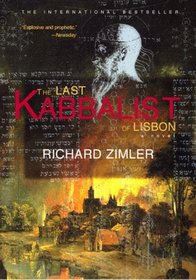Helpful Score: 3
Its nice to know that even advanced kabbalists were subject to superstition and angst - but this author confused a few things: knowledge of Torah with knowledge of Kabbalah; knowledge of historical events with knowledge of cause and effect. To my mind this book was to disjointed and did not provide the reader with the basic kabbalah concepts necessary to understand.
Did the author really expect a neophyte to understand the upper and lower realms? If, instead, he only expected persons who do have such knowledge to read the book, the author was too simplistic.
of course that's the PASHAT understanding, the book really failed to illuminate the knowledge and use of emanations, and for some unknown reason hide them in a genizah.
Further, though I'm sure that things may have been better for Jews in Constantinople, I'm not sure that it wasn't just by comparison to Portugal.
On a more basic level, the protagonist was simply not sympathetic.
Did the author really expect a neophyte to understand the upper and lower realms? If, instead, he only expected persons who do have such knowledge to read the book, the author was too simplistic.
of course that's the PASHAT understanding, the book really failed to illuminate the knowledge and use of emanations, and for some unknown reason hide them in a genizah.
Further, though I'm sure that things may have been better for Jews in Constantinople, I'm not sure that it wasn't just by comparison to Portugal.
On a more basic level, the protagonist was simply not sympathetic.
An international mystery bestseller which transports the reader into the universe of the Jewish Kabbalah during the Lisbon Portugal massacre of 1506. A young manuscript illuminator tracks the killer of his Kabbalist uncle, attempting to to decode the secret language which may lead to the truth about his uncle\'s death.




